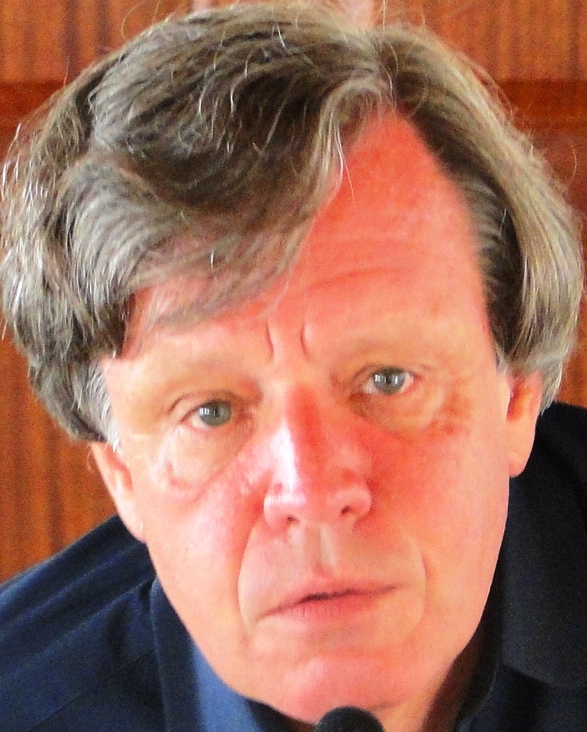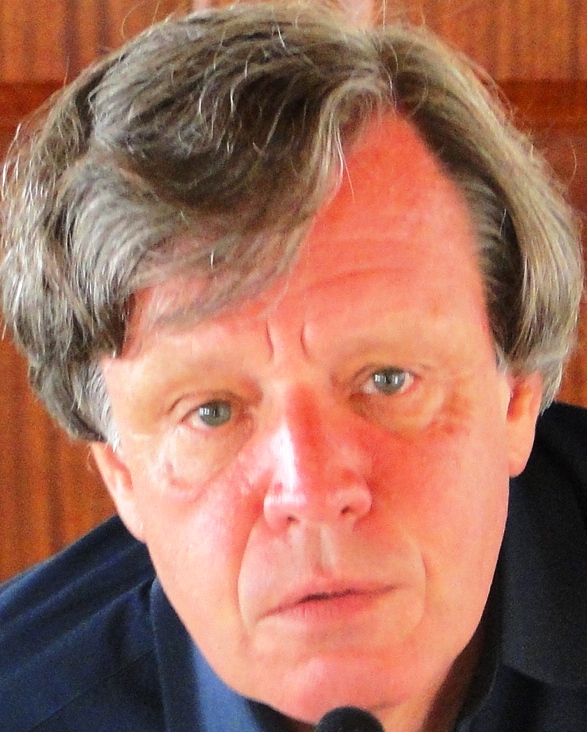Our understanding is that at the negotiations they have agreed what we call the zero option. This means that the north takes all the debt. So the external debt that is between USD 38 and 39 billion in arrears, that is now a responsibility of Khartoum. None of it reverts to the south.
–BANNON–

The World Bank Country Representative for Sudan and Ethiopia, while in Juba last week, said this is a very exciting moment for South Sudan, yet the hard work must start in earnest. NEW TIMES brings you the excerpts:–
WB: We are looking forward to what we think this new country should be focusing on. Whatever plans, strategies, policies the new government begins with, we firmly believe that they need to be very participatory. On Saturday we learnt of working together, sharing common goals. We would like to encourage you to maintain that spirit. People need to feel that they are a part of the decisions that have been made by the leaders. And the president talked about that, he talked about transparency, and we hope that that will be the way that things are done in South Sudan.
Secondly, it is very clear that south Sudan emerges at the most oil-dependent economy on the world. Ninety-nine percent of the government revenues come from oil. No other country has that kind of numbers. It’s very, very critical that this economy diversifies. Managing an oil-based economy is very complicated even for very sophisticated governments. It’s also very dangerous because the price goes up and down, and this gets a lot of governments in trouble. The agriculture sector has so much potential.
The third thing is what we at the World Bank have been trying to understand, how countries coming out of a long political conflict, how countries succeed and how long does it take? In the last three decades countries that have done the best in creating state structures, with ministries that actually deliver services, electricity companies that actually deliver power, we found that it took about twenty years to reach a point where institutions function more or less okay. W
e are not looking at something that looks like a ministry of Education in Denmark. We are looking at something that looks like a ministry of Education in Brazil, or perhaps, South Africa. What that tells us is that creating institutions is a long process and takes enormous amounts of money and perseverance.
Our message at the World Bank is that, after Independence, people want to see a difference, a life that has improved – and that has to be accomplished by institutions.
Expectations are very high, yet we know that building institutions takes a generation. I guess the message for the government, for the people of South Sudan, for us, for donors that are going to be part of this process is: Be patient, be persistent, be persevering, and remember that there will be setbacks. People will get frustrated. But it just takes the long term.
NEW TIMES: The talk right now is about the write-off of the debt south Sudan will inherit. When is that going to happen?
This is something negotiated between the Republic of Sudan and the new government. Our understanding is that at the negotiations they have agreed what we call the zero option. This means that the north takes all the debt. So the external debt that is between USD 38 and 39 billion in arrears, that is now a responsibility of Khartoum. None of it reverts to the south. The understanding between the north and the south is that in exchange for that, the north would like the international community to move as quickly as possible to cut down that debt to some sustainable levels. And South Sudan would help Khartoum in terms of lobbying. That was the agreement negotiated by the team led by ex-President Mbeki.
ASSOCIATED PRESS: What would happen if an agreement doesn’t come to pass on oil soon?
My guess is that what you would find is a different style of negotiating. If the two parties are still negotiating I would think you would keep the same agreement you have in place. Since the agreement that they had during the CPA period was 50:50 revenue sharing, my guess is that by default that position will remain as long as they are still negotiating. Each side needs the other side. The oil is here in the south but all the facilities needed to get it through are based in the north. It’s not in either side’s interest to do anything that upsets their revenue. My guess is that it will remain 50:50 until they have a deal. But like everything in politics it’s difficult to predict.
NEW TIMES: Concerning the debt, one, what happens if Khartoum goes back on its word, reneges on its agreement to take on the debt? Two, what happens if the international community doesn’t come through with a debt waiver? Three, is there anything that would prevent Khartoum from reneging on this agreement?
I think there would be enough international pressure to discourage Khartoum from doing that. So far we have had no indication that that’s going on. In fact, our teams are working with Khartoum on debt reconciliation.
When you don’t pay the debt for a long time, your records get out of date, and sometimes you find that people who hold the debt think that they owe X number of dollars and the government thinks that they owe a different amount.
We have been doing that process with the government in Khartoum. If somebody [planned] to repudiate it he would not necessarily want to go through this process. All I can tell you is that the kind of options that have been discussed,
if Khartoum had not agreed to take on 100 percent of the debt and the arrears, what you would have done is the apportionment process, which is a little bit complicated because that would involve saying, Ok, the government in Khartoum borrowed a hundred; how much of that hundred was invested in the south. If 5 percent was invested in the south the south would conceivably say, in that case we take over 5 percent of the debt.
That process was rejected and the north said, ok, we will take on a hundred percent of the debt.
Juba Airport traffic up to 70 planes a day
BY DENG GARANG JOK
Traffic at Juba airport has risen over the past year and the upcoming new airport will allow 70 planes to land – both day and night, up from 50 a year ago, Transport and Roads Minister Lino Makana has said.
That would mean roughly five planes landing per hour. However, many of the flights are also domestic.
Makana described Southern Sudan as double land lock Country in the regions.
At a press briefing at Southern Sudan Hotel, Makana aid South Sudan needs roads network to link with its neigbour in the north. He said his Ministry managed to cover seven thousand kilo meters Marrum roads with completed two hundred Bridges that connect South Sudan. Makana empathizes on the needs of developing river transport as six ports are already in place operating. Makana also said the ministry will also embark on railway rehabilation. Five hundred kilo meters of rail were already rehabilitated last year under a Fund from the Republic of Sudan.
China, South Sudan seek agreement
The Embassy of People’s Republic of China has contributed one hundred thousand Postal stamps with ten Postal seals, each representing one state of South Sudan to the Ministry of Telecommunication and Postal Services Republic of South Sudan.
China’s Ambassador to South Sudan Li Zhiguo said stamps are a symbol of national sovereignty that complete bring Independence to its fullest.
The donation came last week as government of South Sudan seeks a Memorandum of Understanding with China. According to the minister of Telecommunications & Postal Services, Madut Biar, government will work with china to develop the new Republic, adding that the two countries would best work through an MoU.
Zhiguo said the stamps reflect the friendships of the Chinese people towards the South Sudanese people. He said china is ready to develop a friendly and cooperative relationship in all fields on the basis of mutual respect, equality and mutual benefit in order to push forward common development of the two countries.
Madut said he appreciated the Chinese gesture, noting that it was the first nation to offer postal stamps to the Republic of South Sudan.
Meanwhile, China will fund the ministry of Agriculture & Forestry will introduce agriculture machinery training centers as part of a plan to build capacity from small scale to large scale farming, according the agricultural policies draft, aimed at producing 2 million tones of cereals, Minister, Ann Itto, said last week.




